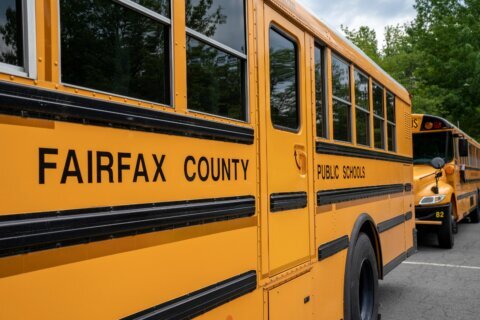Despite pressure from faith communities in Virginia to have schools closed on certain religious holidays, the Fairfax County School Board voted Thursday to adopt a calendar for the next school year that does not include the proposed closures and instead is intended “to recognize, respect, and honor the plurality of religious and cultural observances” in the county.
The board in the diverse Virginia school district that has more than 188,000 students voted for a “middle ground” school calendar option, deciding to not to give students off on Rosh Hashanah, Yom Kippur, Eid and Diwali, but to formally recognize the four holidays along with a range of other religious and cultural observances.
The calendar for the 2021-2022 academic year in Fairfax County will recognize 15 such observances. It sets the first day of school as Monday, Aug. 23, 2021, and the last day as Friday, June 10, 2022.
On the recognized days, Fairfax County Public Schools will prohibit tests, quizzes, field trips and other major school events from being scheduled.
The religious and cultural observances to be observed are the following:
- Eid al-Adha;
- Rosh Hashanah;
- Yom Kippur;
- Día de los Muertos;
- Diwali;
- Bodhi Day;
- Three Kings Day/Epiphany;
- Orthodox Christmas;
- Orthodox Epiphany;
- Lunar New Year;
- Ramadan;
- Good Friday;
- Theravada;
- Orthodox Good Friday/Last Night of Passover;
- Eid al-Fitr.
Students will not be expected to study on those days, and tests and quizzes would be give prior to those days.
Employees in Virginia’s largest school system will be permitted to make up 16 hours of any time they miss for religious or cultural observances. The school system will update its regulations for the start of the new school year that begins July 1.
“The approach taken in the development of this calendar is one of equity and inclusivity,” said Ricardy Anderson, chairman of the school board. “It aims to center equity by elevating our systems’ respect for religious and cultural observances.
“While this final calendar may not align with the goals of everyone in Fairfax County, it recognizes all religious and cultural observances where Fairfax County Public Schools has seen above-average absences over the last five years.”
A religious observances task force created by the school board worked for months to craft calendar options that included the diverse religious holidays
“I do appreciate all the time that the community, the school board and staff have devoted to ensuring our school calendar reflects the values of Fairfax County Public Schools,” said Scott Brabrand, the school system’s superintendent.
For the 2021-2022 school year, students will get the following:
- Three days off at Thanksgiving — Nov. 24 to Nov. 26;
- Two weeks off for winter break — Dec. 20 to Dec. 31;
- One week off for spring break — April 4 to April 8.
The school board said it decoupled Good Friday from spring break.
Like previous calendars, holidays and teacher workdays will be spread evenly through the years.
The decision not to give students off for Rosh Hashanah, Yom Kippur, Eid and Diwali — holidays recognized by members of the Jewish, Muslim and Hindu communities — did not please the Jewish Community Relations Council of Greater Washington.
“We are deeply disappointed,” said the group’s associate director Guila Franklin Siegel. “The stunning lack of cultural competency and the lack of empathy for the experience of minority faiths we have seen throughout this process make clear that a great deal of education remains necessary.”
Srilekha Palle, who was assigned to the task force, said she was disappointed by the decision made, but that she would not stop pushing for change.
“The fight isn’t over — we would love to regroup,” she told WTOP. “I mean, people were all upset yesterday, that meeting went long.”
Palle said that many on the task force were under the impression that the board was going to act on the recommendations they made. She called it a “miscommunication.”
I think one of the reasons that it is this upsetting to the religious task force is — the task force was asked to do this work, they were asked to kind of look into religious equity, academic equity and kind of come up with a plan,” she said.
“And granted, it just so happened, there was a miscommunication, from what I understand, where the school board thought we were just going to be recommending,” Palle said. “But we were given an impression that ‘we will take your recommendations,’ pretty much so there was definitely a miscommunication.”
A statement from the Ahmadiyya Muslim Community, Association of United Hindu and Jain Temples of Metropolitan Washington, Durga Temple of Virginia, Hindu American Foundation, Jewish Community Relations Council of Greater Washington, McLean Islamic Center, Northern Virginia Hebrew Congregation, and Temple Rodef Shalom says:
Today was a difficult day for faith communities across Fairfax County. As religious minority faith communities, we stand united in our commitment to our families. While the school board has sought to divide us further, we have coalesced around this issue, strengthening our commitment to one another and to the equity of religious minority groups in Fairfax County. We will continue to hold the FCPS School Board and Administration accountable to ensure that our communities are not disadvantaged by the decisions taken today. We look forward to a clear statement of affirmation that outlines what, and how, FCPS will change and be held accountable for the equitable treatment of religious minority students, staff and faculty.
Other community religious leaders also feel that the board’s choices do not go far enough.
“We don’t think that the changes that were introduced are meaningful changes at all,” said Guila Franklin Siegel, associate director of the Jewish Community Relations Council of Greater Washington.
She believes students, staff and teachers should be given time off, not time that needs to be made up. Franklin Siegel cited hourly-wage earners who lose money while taking off for religious holidays.
“We believe that this change has to happen, and that it will happen, as it has happened in counties throughout our region,” Franklin Siegel said.
Franklin Siegel said her organization — and the interfaith partners they joined with to push for the change — will continue to fight, looking now to bring about the changes in the 2022-23 school year calendar which has already begun being discussed by the school system and its board.
“We won’t stop until we have achieved equity for all kids within FCPS and all employees with in FCPS.”
WTOP’s Mike Murillo and Zeke Hartner contributed to this report.









